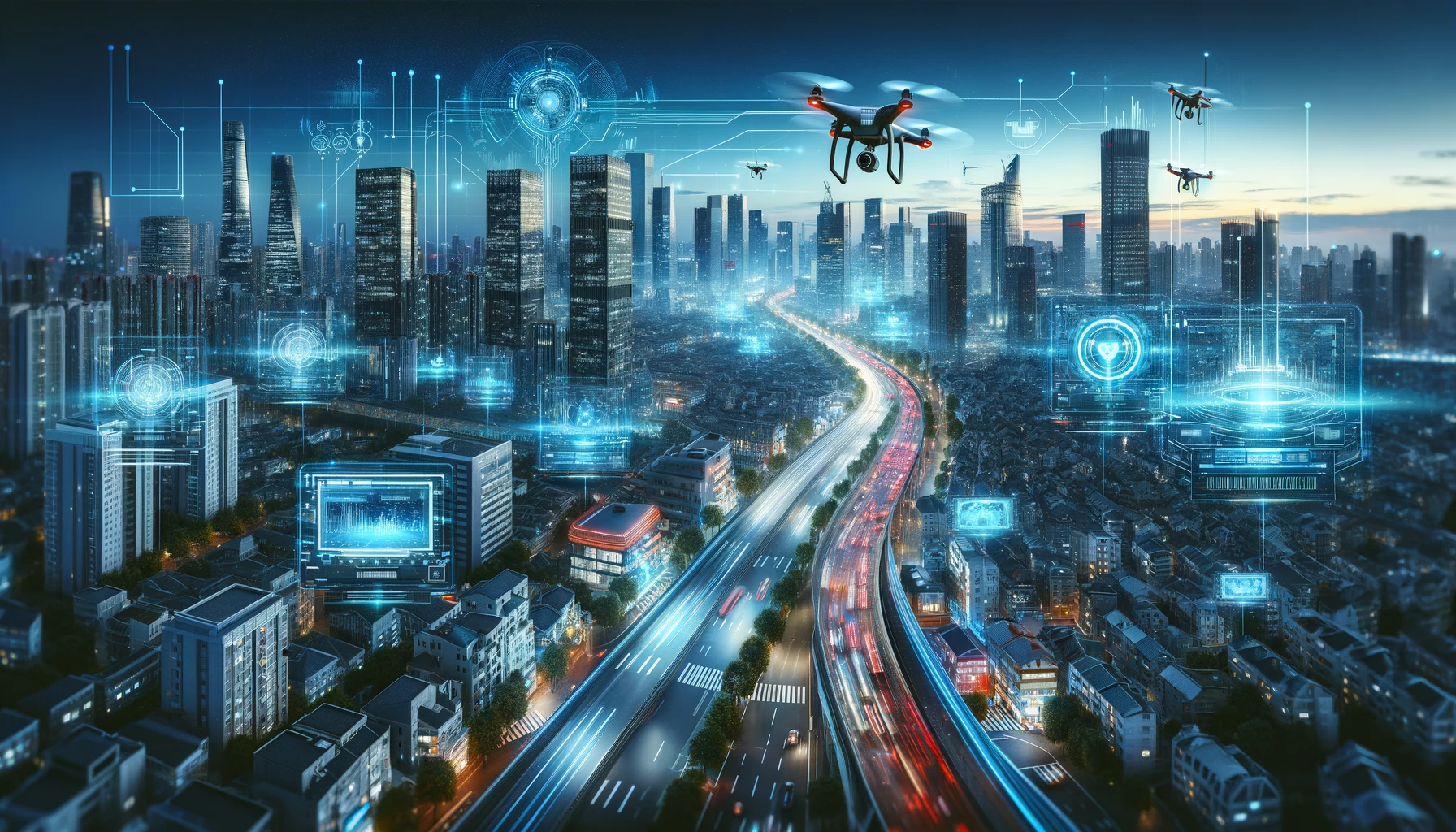
In the ever-evolving landscape of the physical security industry, the integration of Artificial Intelligence (AI) has emerged as a groundbreaking trend. AI is revolutionizing how businesses and organizations approach their security needs, offering innovative solutions that combine advanced technology with enhanced operational efficiency. This article delves into the impact of AI on physical security, exploring its benefits, challenges, and future prospects.
Embracing the Future: AI Integration in Physical Security SystemsAI-Powered Surveillance: A New Era of MonitoringEnhancing Cybersecurity MeasuresSmart Access Control: Beyond Traditional MethodsChallenges and Ethical ConsiderationsThe Future of AI in Physical SecurityIntegrating AI with Physical Security InfrastructureEthical AI Use in SecurityAI and the WorkforceThe Impact of AI on Security Policy and RegulationAI in Emergency Response and Crisis Management
Embracing the Future: AI Integration in Physical Security Systems
AI-Powered Surveillance: A New Era of Monitoring
The use of AI in surveillance systems is perhaps the most visible and impactful aspect of AI integration in physical security. Traditional surveillance methods often rely on human monitoring, which can be labor-intensive and prone to errors. AI-powered surveillance systems, on the other hand, bring a new level of sophistication to monitoring. These systems use advanced algorithms to analyze video feeds in real-time, identifying potential security threats with greater accuracy and speed than ever before.
One of the key advantages of AI surveillance is its ability to detect unusual patterns of behavior. This capability extends beyond simple motion detection; AI algorithms can recognize specific activities, facial expressions, and even predict potential incidents before they occur. For instance, AI can analyze crowd behavior to identify potential security breaches in crowded public spaces, enhancing public safety.
Enhancing Cybersecurity Measures
In the digital age, the lines between physical and cybersecurity are increasingly blurred. AI plays a crucial role in bridging this gap. AI-driven security systems can monitor both physical and digital realms, providing a comprehensive security solution. These systems can detect cyber threats that may lead to physical security breaches, such as access control system hacks or surveillance data tampering.
Smart Access Control: Beyond Traditional Methods
AI integration has transformed access control systems from simple lock-and-key mechanisms to sophisticated, multi-layered security solutions. Modern AI-powered access control systems use biometrics, facial recognition, and behavior analysis to grant or deny access. This technology not only enhances security but also offers a seamless, user-friendly experience for authorized individuals.
Challenges and Ethical Considerations
Despite the numerous benefits, the integration of AI in physical security systems is not without challenges. One major concern is privacy. The use of AI, especially in surveillance, raises significant privacy issues. There is a delicate balance between enhancing security and respecting individual privacy rights.
Moreover, the reliability of AI systems is another critical concern. While AI can significantly reduce human error, it is not infallible. There are instances where AI algorithms might misinterpret data or be manipulated, leading to false alarms or security breaches.
The Future of AI in Physical Security
Looking forward, the potential of AI in the physical security industry is immense. We are likely to see more sophisticated AI algorithms that can learn and adapt to new security threats. The integration of AI with other emerging technologies like the Internet of Things (IoT) and 5G networks will further enhance the capabilities of security systems.
Integrating AI with Physical Security Infrastructure
The successful integration of AI into existing physical security infrastructure is a critical aspect of this technological evolution. Security professionals are now tasked with the challenge of seamlessly integrating AI systems with traditional security measures such as CCTV cameras, alarm systems, and access control devices. This integration not only enhances the capability of each individual component but also creates a more cohesive and efficient overall security strategy.
AI's role in predictive analytics is another area of significant development. By analyzing vast amounts of data, AI can predict potential security incidents before they occur. This proactive approach to security is a paradigm shift from the traditional reactive methods. For instance, by analyzing historical data, AI can identify patterns and predict periods of increased risk, allowing security teams to allocate resources more effectively.
Ethical AI Use in Security
The ethical use of AI in security is a topic of ongoing debate. It is crucial for organizations to establish clear guidelines and policies for AI use, ensuring that these systems are used responsibly and ethically. This includes considerations around data handling, privacy, and the potential biases in AI algorithms. Transparency in how AI systems operate and make decisions is key to building trust and ensuring ethical usage.
AI and the Workforce
The integration of AI in physical security also has implications for the workforce. There is a common misconception that AI might replace human security personnel. However, the reality is more nuanced. AI is best seen as a tool that enhances the capabilities of security staff. By automating routine tasks and providing advanced analytical capabilities, AI allows security personnel to focus on more complex and strategic aspects of their roles. Furthermore, the rise of AI creates new opportunities for specialized skills and training in the security industry.
The Impact of AI on Security Policy and Regulation
As AI becomes more prevalent in the physical security industry, it will also influence security policies and regulations. Governments and regulatory bodies will need to update and create new guidelines to address the unique challenges posed by AI, such as data protection, surveillance regulations, and ethical standards. Organizations will need to stay informed and compliant with these evolving regulations to effectively leverage AI in their security strategies.
AI in Emergency Response and Crisis Management
Beyond preventative measures, AI also plays a crucial role in emergency response and crisis management. AI systems can quickly analyze data from various sources during an emergency, providing real-time insights that can guide response efforts. For example, in the event of a natural disaster, AI can help in analyzing the impact on infrastructure and guide emergency personnel in their response efforts.
for more information goto Security Guards usa or Security Guards UK
https://www.securityguards.org.uk/ai-integration-in-physical-security/
Comments
Post a Comment